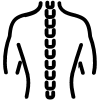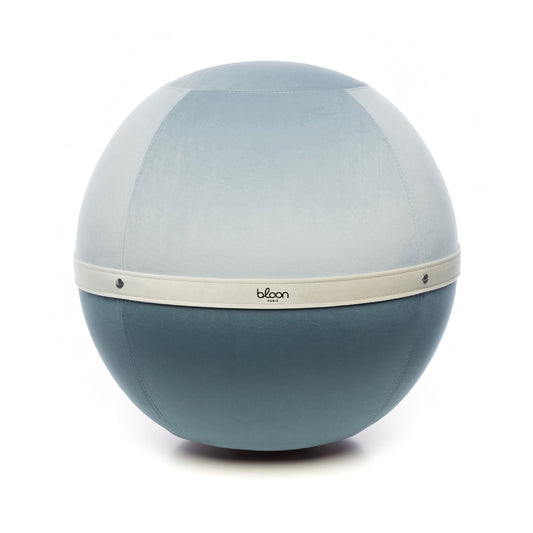Is workplace fatigue an inevitable evil? With increasingly busy days, ever-present stress, and high professional expectations, the feeling of exhaustion affects a large number of workers.
In this article, we explain the causes and signs of fatigue at work and give you solutions to regain your energy and stay productive.
What is fatigue at work?
Workplace fatigue can be physical or mental and often stems from the work environment. Office fatigue can lead to more serious burnouts. Therefore, it's important to understand its causes and recognize its signs so you can take action quickly.
Physical fatigue
Physical fatigue at work refers to bodily fatigue often caused by prolonged exertion, repetitive tasks, maintaining a stagnant position for hours, long hours of standing, and carrying heavy loads.
If this physical fatigue is ignored, it can lead to serious consequences such as chronic diseases.
Mental fatigue
Mental fatigue at work is the result of cognitive or emotional overload. It often stems from prolonged concentration, increased stress, or constant pressure to deliver results.
This can lead to a drop in motivation, frequent forgetfulness, an inability to think clearly and can even lead to burnout.
Why are you tired at work?
There are many causes of workplace fatigue: long working hours, a stressful and unsuitable environment, lack of sleep, or poor nutrition. Overwork or a lack of regular breaks also contribute to exhaustion.
Signs of fatigue at work
Low energy and feeling exhausted
Low energy and a feeling of exhaustion are the first noticeable signs of workplace fatigue. This is typically characterized by difficulty concentrating, forgetfulness, and decreased productivity. Low energy primarily stems from a lack of rest and recovery.
Difficulty concentrating and frequent forgetfulness
Difficulty concentrating and frequent forgetfulness are common symptoms of office fatigue, caused by mental and physical overwork. That's why it's important to work in an ergonomic environment and be organized.
Workplace fatigue leads to reduced performance, with an increase in errors in daily tasks. When you're tired, your ability to stay focused on a task decreases, which can lead to errors and project delays.
Irritability and mood swings
Another common symptom of office fatigue is increased irritability, accompanied by rapid mood swings. These symptoms can be due to constant stress and pressure at work, as well as a lack of sleep and rest.
To reduce irritability and mood swings, it is important to take regular breaks throughout the day to relax and recharge.
Sleep disorders
Fatigue at work can lead to sleep disturbances, creating a vicious circle that worsens all symptoms.
Lack of sleep can lead to difficulty concentrating, decreased productivity, and a general feeling of malaise.
Eating disorders
A balanced diet allows your body and mind to have the energy needed to work throughout the day and avoid mental and physical fatigue at work.
However, eating disorders are often linked to stress and anxiety at work. People who suffer from these disorders tend to skip meals or eat unhealthily, which affects their overall well-being and affects their work performance.
Physical pain
Physical stress, such as headaches or neck pain, can be directly linked to work-related fatigue. Busy work schedules, lack of sleep, or poor posture can contribute to these aches and pains.
If you regularly experience physical pain at work, it is important to talk to your employer to find solutions to improve your working conditions.
Another common cause of work-related physical pain is carpal tunnel syndrome, often associated with prolonged computer use and repetitive keyboarding.
Demotivation and loss of interest in work
Lack of motivation to achieve goals at work is often caused by a lack of recognition, monotonous or repetitive tasks, relationship conflicts with colleagues or the employer, or simply a lack of work-life balance.
To avoid this lack of motivation, it is important to communicate with your employer about your needs and concerns, as well as find ways to motivate yourself in your work by setting achievable goals.
How to prevent and manage fatigue at work?
Organize your schedule and prioritize tasks
Proper time management and task prioritization are key to limiting work fatigue and staying productive. You can use a small notebook or online calendar to define and prioritize your tasks each week to avoid overload and achieve your goals more easily.

Take regular breaks to recharge your energy
Take frequent breaks and take the opportunity to walk or stretch to effectively reduce fatigue at work. During your break time, don't hesitate to engage in relaxing activities like meditation, listening to music, or reading a book to mentally connect with work and relax.
Finding a balance between work and personal life
It's easy to get caught up in the demands of work and spend too much time on it, to the detriment of your mental and physical health. That's why we recommend keeping work and home separate. Reserve the office for work and home for your personal life.
Avoid taking your work concerns home with you; this helps manage fatigue at work.
Create an ergonomic workspace
According to According to a study , 75% of employees believe that the quality of furniture directly affects their productivity. An ergonomic workspace is essential to reduce physical and mental fatigue at work.
Here are some tips for creating an ergonomic work environment:
-
Choose dynamic seating to maintain good posture.
-
Place the computer at eye level to avoid neck and shoulder strain.
-
Use a footrest if necessary to promote an ergonomic sitting position.
-
Adjust screen brightness, contrast, and font size to suit your visual preferences.
-
Use a sit-stand desk to alternate between sitting and standing.
Practice physical activity
Physical activity helps you stay fit and improves circulation. Exercise also helps improve mental health and prevent burnout.
Eat a balanced diet and stay hydrated
Make sure you eat a healthy diet and drink enough water, allies against fatigue at work.
To maintain a good energy level and promote To concentrate at work , it is essential to favor a diet rich in nutrients.
Choose whole foods like grains, fresh fruits and vegetables, lean proteins, and essential fatty acids found in oily fish or nuts.
Avoid eating fast-acting sugars and processed foods, which can cause energy dips. Also, consider healthy snacks, such as dried fruit or plain yogurt, to avoid cravings throughout the day.
Communicate with your manager or team in case of overload
If you're feeling tired at work, talk to your manager or colleagues to redistribute responsibilities by delegating tasks and finding solutions. You can request more ergonomic arrangements, breaks, or tools to help you stay organized and focus more easily.
FAQ: Fatigue at work
What to do when you are tired at work?
When you're tired at work, you need to take frequent breaks, communicate about your difficulties, and respect your boundaries.
What are the signs of burnout?
Signs of workplace fatigue include low energy, sleep disturbances, irritability, and decreased concentration.
Why am I so tired at work?
Fatigue at work can come from overload, excessive pressure, lack of restful sleep or poor diet.
What are the 3 types of fatigue?
The three types of fatigue include physical, mental, and emotional fatigue.
Should I continue working if I am tired?
If you are tired at work, it is essential to listen to your body's limits to avoid serious consequences.
Why does my job exhaust me?
A poor balance between work demands and personal resources can lead to excessive work fatigue.
How do I stop feeling tired at work?
Prioritize healthy eating, regular breaks and better organization to reduce fatigue at work.



















